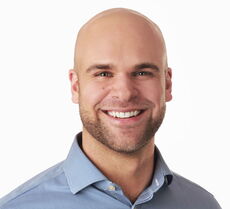
Why Maine employers should rethink primary care
Health care has become one of the most significant, and most frustrating, investments for Maine employers.
Costs keep rising, yet employees still face long waits, disconnected care and difficulty forming meaningful relationships with primary care providers. As a result, many end up turning to urgent care, expensive emergency rooms or specialists for issues that often could have been managed or prevented through primary care.

This fragmented, reactive model drives costs higher and undermines trust in the health care system. It also contributes to higher absenteeism and lower productivity and can impact corporate culture.
Employers and their employees aren’t alone in their frustration. Primary care providers are doing heroic work within a structure that isn’t designed to support a sustained, long-term trusted relationship.
They’re expected to manage chronic illness, coordinate complex care and follow up proactively, but without the time, tools or team support to do it well. The result is a system that fails patients and disheartens clinicians — pushing many to leave a career they passionately trained for and deeply believed in.
Primary care is rarely treated like the high-value asset it is. It should be where access begins, trust is built and long-term costs are managed. By seeking out advanced primary care models as a core benefit for their employees, business leaders can meaningfully improve the health and well-being of their workforce while supporting the future of healthcare delivery in the US.
What employers can do to drive change
Demand real access, not just network coverage. “In-network” is meaningless if employees can’t get care when they need it. Look for solutions that guarantee same- or next-day visits, offer multiple communication modes (video, phone, messaging) and include 24/7, after-hours clinical support.
Value relationships. Better health outcomes start with strong relationships. Continuity with the same
provider or team drives better results, higher satisfaction and lower costs. Models that emphasize long-term relationships over transactional visits pay off.
Insist on integrated, team-based care for your team. Primary care works better when it’s not just a physician alone. Teams that include behavioral health, pharmacy, physical therapy and health coaching can address more needs in fewer visits to reduce downstream costs and simplify the employee experience.
Treat navigation as care, not overhead. Employees need help understanding where to go and what to do next. Practices that proactively coordinate referrals, follow-up and benefits guidance reduce delays and confusion.
Measure health outcomes, not just visits. It’s time to go beyond utilization metrics. Ask whether your healthcare investment is reducing ER visits, improving chronic disease outcomes and increasing patient trust — not just how many appointments were booked. The real measure of value is total cost of care over time.
No easy fix
Fixing healthcare isn’t easy, but improving primary care is a powerful place to start.
Advanced primary care models offer employers a chance to create value for employees where friction exists today by fostering strong patient-provider relationships through constant connection to a comprehensive care team. This approach benefits patients but also promotes quality of life for clinicians and creates efficiency for overburdened health systems.
For business leaders, rethinking how to improve primary care for their employees isn’t just a benefits decision, it’s a strategic investment in a healthier future for Maine.









0 Comments